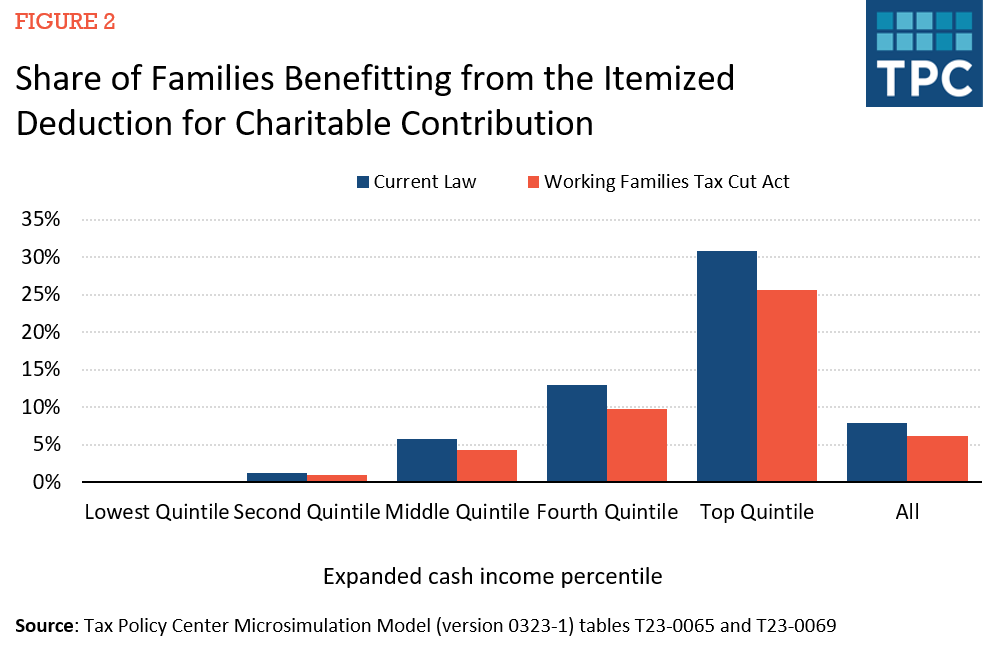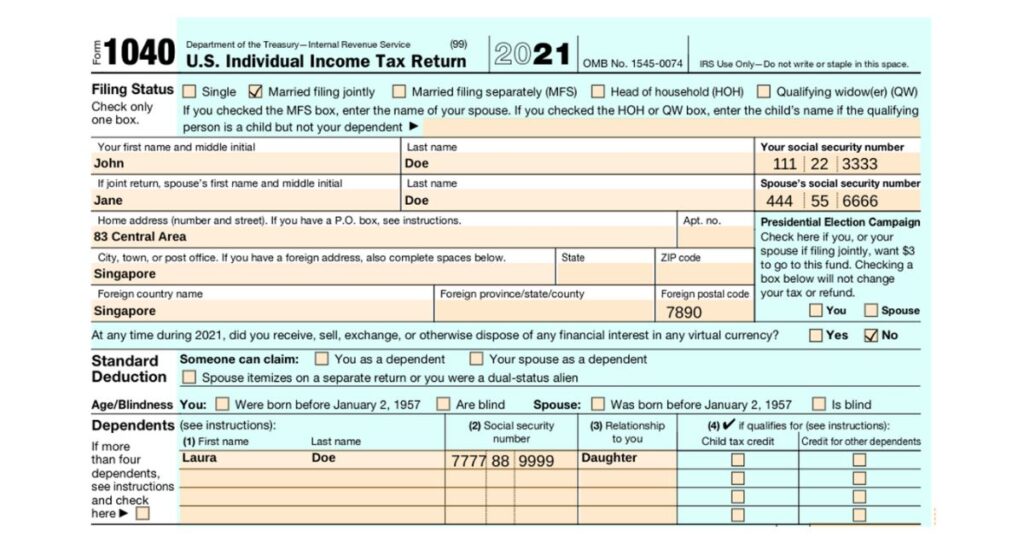Comprehending the Foreign Earned Earnings Exclusion and Its Impact on Your Typical Deduction
The Foreign Earned Revenue Exclusion (FEIE) offers substantial advantages for expatriates, enabling them to omit a portion of their foreign-earned earnings from U.S. taxes. Nevertheless, asserting the FEIE can complicate one's tax obligation scenario, especially pertaining to the standard reduction. Understanding this interaction is essential for people living abroad. As expatriates browse these intricacies, they should consider exactly how their choices impact their overall tax liability. What methods can they utilize to maximize their monetary end results?
What Is the Foreign Earned Earnings Exclusion (FEIE)?
The Foreign Earned Income Exclusion (FEIE) works as a vital tax obligation benefit for U.S. citizens and resident aliens functioning abroad. This stipulation permits eligible people to exclude a significant section of their foreign-earned earnings from united state taxes, properly lowering their general tax obligation concern. The FEIE aims to reduce the monetary stress on migrants and encourages Americans to go after employment possibility in foreign markets. The exclusion puts on earnings, salaries, and professional charges gained while staying in a foreign country. The optimal exclusion amount is changed annually for rising cost of living, guaranteeing that it stays pertinent to existing financial conditions. By using the FEIE, expatriates can preserve even more of their revenue, fostering financial stability while living overseas. On the whole, the FEIE plays a crucial role fit the monetary landscape for Americans abroad, assisting in a smoother change to global job settings and promoting financial involvement on an international range.
Eligibility Needs for the FEIE
Eligibility for the Foreign Earned Revenue Exemption (FEIE) is contingent upon conference details criteria set by the Internal Income Service (IRS) Mostly, individuals need to be U.S. residents or resident aliens who gain revenue while living in a foreign country. To qualify, they should please one of 2 key tests: the Physical Visibility Test or the Authentic Home Examination.
The Physical Existence Test needs individuals to be literally existing in a foreign nation for at the very least 330 complete days within a 12-month period - FEIE Standard Deduction. Conversely, the Authentic Residence Test requires that people develop residency in an international nation for a continuous duration that includes an entire tax obligation year
Furthermore, the earnings should be stemmed from personal solutions executed in the foreign country. Satisfying these requirements allows taxpayers to omit a considerable portion of their foreign-earned income from united state taxation, thus lowering their general tax obligation responsibility.
Exactly how to Claim the FEIE

To begin the procedure, individuals should gather files that verify their foreign incomes, such as pay stubs, income tax return from foreign nations, and any type of pertinent work contracts. It is important to assure all revenue declared under the FEIE is made from international resources and fulfills the required limits.
Additionally, taxpayers should take into consideration submitting target dates and any kind of possible extensions. Asserting the FEIE properly not only assists in minimizing tax obligation liability however likewise ensures conformity with IRS laws. Appropriate paperwork and adherence to standards are important for an effective claim of the Foreign Earned Income Exclusion.
The Interaction In Between FEIE and Standard Deduction
The interaction in between the Foreign Earned Earnings Exclusion (FEIE) and the standard reduction is a necessary facet of tax preparation for migrants. Understanding the fundamental concepts of FEIE, along with the restrictions of the basic reduction, can considerably affect tax filing strategies. This area will check out these aspects and their implications for taxpayers living abroad.
FEIE Basics Clarified
While lots of migrants look for to decrease their tax worry, understanding the communication in between the Foreign Earned Revenue Exemption (FEIE) and the typical reduction is vital. The FEIE allows U.S. people and resident aliens living abroad to omit a specific amount of international earned income from U.S. taxes. This exemption can significantly reduce taxable earnings, possibly influencing qualification for other reductions, such as click here for more info the conventional reduction. Incredibly, individuals who assert the FEIE can not additionally take the typical deduction against the left out earnings. Consequently, expatriates have to meticulously assess their overall earnings and deductions to maximize their tax scenario. Understanding of these interactions can result in even more enlightened financial choices and better tax methods for migrants guiding via their go to my site unique circumstances.
Requirement Reduction Limitations
Recognizing the constraints of the common deduction in regard to the Foreign Earned Earnings Exclusion (FEIE) is essential for expatriates maneuvering their tax obligation responsibilities. While the FEIE permits certifying individuals to exclude a particular quantity of foreign-earned earnings from U.S. taxation, it can influence the typical deduction they are eligible to case. Especially, taxpayers that declare the FEIE can not also declare the standard reduction on that particular left out revenue. In addition, if an expatriate's complete income drops listed below the common deduction limit, they might not take advantage of it in any way. This interplay requires careful planning to optimize tax obligation benefits, as underutilizing the basic reduction can cause greater taxable income and raised tax responsibility. Recognizing these limitations is critical for reliable tax obligation approach.
Tax Filing Ramifications
Navigating the tax obligation declaring implications of the Foreign Earned Revenue Exclusion (FEIE) requires cautious factor to consider of how it interacts with the basic reduction. Taxpayers using the FEIE can leave out a considerable portion of their foreign-earned revenue, however this exemption influences their qualification for the basic reduction. Especially, if a specific cases the FEIE, they can not additionally claim the basic deduction for that income. This can lead to a reduced general tax obligation however may make complex the declaring procedure. Furthermore, taxpayers have to assure compliance with internal revenue service requirements when submitting Form 2555 for the FEIE. Recognizing these communications is essential for maximizing tax advantages while preventing prospective pitfalls in the declaring procedure. Mindful planning can take full advantage of benefits and reduce responsibilities.
Potential Tax Ramifications of Utilizing the FEIE
The Foreign Earned Income Exemption (FEIE) offers considerable tax advantages for united state citizens working abroad, yet it likewise features prospective implications that necessitate careful factor to consider. One major repercussion is the influence on eligibility for certain tax debts and reductions. By choosing to use the FEIE, taxpayers may inadvertently minimize their adjusted gross revenue, which can limit accessibility to debts like the Earned Revenue Tax Debt or reduce the quantity of conventional reduction available.
Additionally, individuals who use the FEIE might encounter complications when returning to the united state tax obligation system, specifically worrying the taxation of future income. The exclusion applies just to made income, indicating other income types, such as rewards or rate of interest, stay taxable. This difference demands meticulous record-keeping to assure compliance. The FEIE might affect state tax commitments, as some states do not recognize the exemption and may tax all income made by their locals, regardless of where it is earned.
Tips for Maximizing Your Tax Obligation Benefits While Abroad
While functioning abroad can be improving, it also offers distinct opportunities to enhance tax obligation advantages. To optimize these benefits, people should first identify their eligibility for the Foreign Earned Revenue Exemption (FEIE) and think about the physical existence test or the bona fide residence test. Maintaining detailed records of all income made and costs incurred while overseas is necessary. This paperwork sustains insurance claims for credit histories and reductions.
Additionally, understanding the tax treaties in between the United States and the host nation can help prevent dual taxes. Individuals should likewise explore contributions to tax-advantaged accounts, such as IRAs, which might supply why not find out more more reductions.

Speaking with a tax specialist specializing in expatriate tax obligation regulation can use customized methods and assurance conformity with both United state and international tax obligation obligations. By taking these actions, migrants can properly improve their monetary situation while living abroad.
Frequently Asked Concerns
Can I Use FEIE if I Help a Foreign Government?
Yes, an individual can utilize the Foreign Earned Earnings Exemption (FEIE) while helping an international government, offered they meet the requisite problems detailed by the internal revenue service, including the physical presence or bona fide house examinations.

Does FEIE Relate To Self-Employment Earnings?
The Foreign Earned Income Exclusion (FEIE) does put on self-employment income, offered the specific meets the required needs. Qualified independent people can leave out qualifying revenue gained while residing in a foreign country from taxation.
Suppose My International Revenue Exceeds the FEIE Limitation?
The excess quantity may be subject to U.S. tax if international income exceeds the FEIE limit. Taxpayers need to report and pay taxes on the earnings above the exclusion limit while still benefiting from the exemption.
Can I Claim the FEIE and Detail Deductions?
Yes, people can claim the Foreign Earned Earnings Exemption (FEIE) while additionally making a list of deductions. They have to be aware that asserting the FEIE might affect the schedule of particular itemized reductions on their tax return.

Exactly How Does FEIE Impact My State Tax Obligation Commitments?
The Foreign Earned Earnings Exclusion can minimize state tax commitments, as lots of states follow federal standards. Nevertheless, private state regulations vary, so it's essential to seek advice from state tax regulations for details ramifications on tax obligation obligations.
The Foreign Earned Earnings Exclusion (FEIE) offers substantial benefits for migrants, allowing them to exclude a section of their foreign-earned income from United state taxes. While lots of migrants seek to decrease their tax burden, understanding the interaction in between the Foreign Earned Income Exemption (FEIE) and the common reduction is necessary. Comprehending the limitations of the typical reduction in connection to the Foreign Earned Earnings Exclusion (FEIE) is necessary for expatriates steering their tax obligations. The exclusion applies only to made income, implying other earnings types, such as rewards or interest, continue to be taxable. The Foreign Earned Revenue Exclusion (FEIE) does apply to self-employment revenue, provided the private meets the necessary requirements.